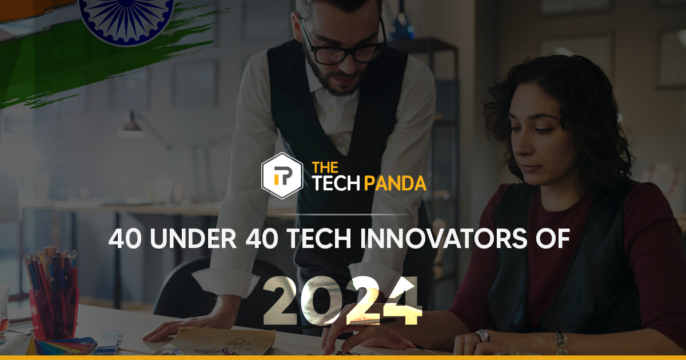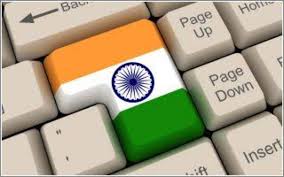In an era defined by digital transformation, businesses are facing increasing pressure to streamline their operations and enhance efficiency. One area ripe for innovation is accounting, where technology solutions are revolutionizing traditional processes and propelling businesses into the age of automation.
From small startups to established enterprises, businesses are recognizing the importance of leveraging accounting technology solutions to stay competitive in today’s fast-paced market. As per GoRemotely data, as of 2020, 64.4% of SMBs use accounting software. In fact, over 50% of all SMBs opt for accounting software instead of hiring accountants for their business’s accounting tasks.
Read more: Guardians of blockchain: Reinforcing cybersecurity in the digital age
For example, this week, HostBooks, a provider of business automation software, partnered with Max Value Hotels and Resorts to streamline and optimize their financial and operational management.
This indicates that automation is in when it comes to business accounts. And this is why accounting technology has been improving. As per Research and Markets, 2020 saw the global market value for accounting services climb up to US $544.06 billion, and is projected to touch US $735.94 billion by 2025.
In 2019, the British multinational enterprise software company, Sage said 90% of global accountants were becoming aware of the cultural shift in accountancy towards technology adoption. As per the Accounting Today 2022 Year Ahead Survey, 51% of firms identify keeping up with regulatory change as their primary challenge.
As Chris Downing, former chartered accountant and director for accountants and bookkeepers at Sage, says in 2020, “The most disruptive practices have got progressive people with ideas. They respect the existing accountancy model but are willing to experiment beyond the bounds of their comfort zone in order to deliver more services in a varied, more efficient manner that is exciting to clients.”
Accounting solutions encompass a wide range of tools and software designed to automate repetitive tasks, streamline workflows, and provide real-time insights into financial performance, such as Quickbooks Software, Wave Accounting, Fresh Books, Sage 50 Premium, AccountEdge Pro, and Xero, are just a few top names.
The Tech Panda spoke to Shagun Malhotra, Founder of SkyStem, a company that delivers account reconciliation and financial close applications through its software ART, who says that modern accounting technology entails quite a lot to help today’s businesses.

Modern accounting technology encompasses a range of software solutions and tools designed to streamline financial processes, automate repetitive tasks, provide real-time insights, and enhance accuracy in financial reporting
Shagun Malhotra, Founder of SkyStem
“Modern accounting technology encompasses a range of software solutions and tools designed to streamline financial processes, automate repetitive tasks, provide real-time insights, and enhance accuracy in financial reporting,” she says.
“It allows them to scale, be more cost effective and competitive by being able to offer better pricing as they automate tasks like forecasting and having up to date inventory. It allows them to have a quicker turnaround in supplying to their customers as they have up to date data and with information at their fingertips, they are able to address competition in real time,” she adds.
Why are businesses going digital with their numbers? What’s wrong with the old way?
The benefits of accounting technology solutions extend beyond internal operations to customer experience. By streamlining processes such as invoicing and payment processing, businesses can deliver a seamless and convenient experience to their customers, enhancing satisfaction and loyalty. One of the key drivers behind the adoption of accounting technology solutions is the need for increased efficiency.
Complexity and Time-Consuming Processes
Traditional accounting processes, such as data entry, reconciliation, and reporting, are often time-consuming and prone to human error. By automating these tasks, businesses can free up valuable time and resources, allowing their teams to focus on more strategic initiatives.
“Traditional accounting methods involve manual entry of data into spreadsheets or accounting software, which can be time-consuming and prone to errors. This can slow down the financial reporting process, making it difficult for businesses to react quickly to changing market conditions,” says Malhotra.
Traditional accounting methods involve manual entry of data into spreadsheets or accounting software, which can be time-consuming and prone to errors. This can slow down the financial reporting process, making it difficult for businesses to react quickly to changing market conditions
Moreover, automation reduces the risk of errors inherent in manual processes, ensuring greater accuracy in financial reporting and compliance. This not only minimizes the potential for costly mistakes but also enhances trust and credibility among stakeholders, including investors, regulators, and customers.
Real Time Visibility
Another significant benefit of accounting technology solutions is their ability to provide real-time visibility into financial data. With cloud-based accounting software, businesses can access up-to-date information anytime, anywhere, enabling faster decision-making and more proactive financial management.
“Traditional accounting methods often rely on historical data, which may not provide real-time insights into the financial health of the business. Without automation in this area, decision-making can be hindered, as businesses rely on old data for cash flow, expenses, and revenue,” Malhotra explains.
Quick Analytics
Furthermore, these solutions often offer advanced reporting and analytics capabilities, allowing businesses to gain deeper insights into their performance metrics, identify trends, and forecast future outcomes. By harnessing this data-driven approach, businesses can make informed strategic decisions that drive growth and profitability.
Cost Saving
In addition to efficiency and insight, accounting technology solutions also contribute to cost savings. By automating repetitive tasks, businesses can reduce labour costs and allocate resources more efficiently. Moreover, cloud-based solutions eliminate the need for expensive infrastructure and software licenses, offering a more cost-effective alternative to traditional accounting systems.
Inaccurate Inventory Management
Traditional accounting methods may not offer real-time visibility into inventory levels and movement, leading to challenges in inventory management.
“Businesses may experience stockouts or overstock situations, impacting their ability to fulfill customer demand promptly and efficiently. This can result in lost sales opportunities and diminished consumer trust and loyalty, says Malhotra.
Lack of Adaptability to Digital Transformation
Malhotra adds that as businesses increasingly embrace digital technologies to streamline operations and enhance customer experiences, traditional accounting methods may struggle to keep pace.
“Legacy accounting systems may lack integration capabilities with modern software solutions and data analytics tools, limiting businesses’ ability to leverage digital transformation initiatives fully. This can hinder innovation and businesses’ ability to meet consumer expectations for seamless and personalized interactions across digital channels,” she says.
Special Mention for AI
Of all the technology that is prolific in today’s accounting, there is a clear preference for AI.
“AI is definitely at the top right now and a close reality and can provide a variety of benefits,” says Malhotra.
AI has many benefits that accounting can leverage. AI technologies can automate repetitive and time-consuming tasks in accounting, such as data entry, invoice processing, and reconciliation.
“This automation increases efficiency and accuracy, allowing accountants to focus on more strategic and value-added activities,” she says.
By continuously monitoring financial data, AI can help prevent fraudulent activities and mitigate financial risks
Also, AI algorithms can analyze large volumes of financial data quickly and accurately, providing valuable insights for decision-making.
“These insights help businesses optimize their financial performance and identify trends and patterns that may not be apparent through traditional analysis methods,” she explains.
AI-powered systems can detect anomalies and patterns indicative of fraud or errors in financial transactions.
“By continuously monitoring financial data, AI can help prevent fraudulent activities and mitigate financial risks,” she further adds.
Apart from AI, other emerging technologies too are reshaping accounting technology.
Cloud Computing
Cloud computing enables accountants to access accounting software and data from any location with an internet connection. Cloud-based accounting solutions offer scalability, flexibility, and cost-effectiveness, making them attractive options for businesses of all sizes. “Additionally, cloud platforms facilitate collaboration among accountants and clients by providing real-time access to financial information.
Data Analytics and Business Intelligence
Data analytics tools enable accountants to analyze large volumes of financial data to uncover insights and trends that inform decision-making.
“Advanced analytics techniques, such as predictive modelling and machine learning, can forecast future financial performance, identify risks, and optimize resource allocation,” says Malhotra.
Quantum Computing
While still in the early stages of development, quantum computing has the potential to revolutionize accounting by solving complex optimization and simulation problems at a much faster rate than classical computers.
Read more: ‘Upskilling in a scalable way will need a pedagogy shift’
“Quantum computing could enable accountants to perform complex financial modeling, risk analysis, and scenario planning with unprecedented speed and accuracy,” says Malhotra.
Accounting technology solutions have emerged as a powerful enabler of process automation for businesses. By harnessing the capabilities of these tools, businesses can drive efficiency, gain insights, reduce costs, and enhance the customer experience. As the pace of innovation accelerates, embracing accounting technology is no longer a choice but a necessity for businesses looking to thrive in the digital age.











